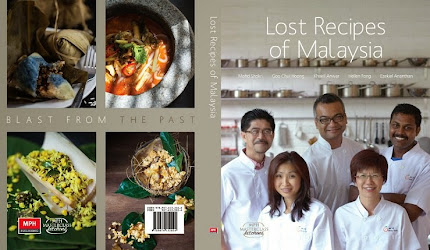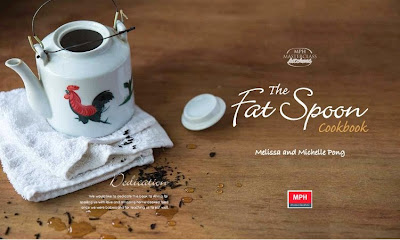Look, Farm Fresh has a new product: ready-to-drink caffè latte.
The same people who brought us such delights as Nubian Goat's Milk (with the messy, user-unfriendly web site) released this product, which I found at the Cold Storage in the newly opened Jaya Shopping Centre at Section 14, Petaling Jaya.
I bought a bottle. I am attracted by new things, especially new coffee things.
The folks at Ladang Anglo Nubian seem very excited about this product, so much so that they felt the need to state that, yes, this is Caffè Latte.
"With real coffee".
And it contains caffeine! Like, you know ... coffee! Not just any coffee, but ... double espresso! Like it says (again) on the graphic of the coffee cup. That's why got "Extra KICK!"
The expiry date should go somewhere else where it won't mar the aesthetics of the coffee-cup drawing.
So, don't play-play! Farm Fresh "Double Espresso Double" Caffè Latte with "Extra KICK" will kick your eyes open big-big!
With "Eyes Wide Open", I see that they don't use "preservative" (which one?) and "stabilizer" (again, which one? And is that US spelling? Likely Microsoft Word).
"700 grm"? Thought millilitre ("ml" or "mL") is generally used in this part of the world.
Now, the back. Again, Farm Fresh reminds us that this is Caffè Latte. "With real coffee". And it contains caffeine! Like, you know ... coffee! Because they're so, like, excited! Also sounds as though they've been stealing sips of their own product.
Coffee has caffeine by default; only tell people when it's decaf.
Shouldn't it be "Ingredients", since there's three of them? Which includes "100% Fresh Cow's Milk" (which you state is "100% Genuine")?
And I'm sure the Celsius should be in uppercase.
They should break the line after "Petaling", perhaps. And if you only have one address (Malaysian), there's no need to emphasise that it's a Malaysian number.
Overall, it's a good idea. But the coffee tastes somewhat medicinal, complex. There's coffee in there, along with other flavours with a hint of ... essence of chicken, for instance. And I barely felt the 'kick' - the downside of having a years-old coffee habit that makes you, well, kind of numb towards anything weaker than a triple espresso.
Great concept, not-too-great product. I'm not sure if all that info was placed there to conform to some industry template, but it could've been done better.
Back to the drawing board, you guys. And this time, with "Eyes Wide Open", please?
I buy the fresh stuff (100% Genuine Fresh!) from you and this variant looks good on the shopping list.
PS: Just learnt that the term is spelled caffè latte (Italian for "milk coffee"). Stands to reason, since modern coffee culture is mainly Italian. So all of us who called it café latte all this time were mixing French and Italian.
10/01/2016 Quite late, but it seems the Farm Fresh people have addressed most of the issues I had.
I think it's because the fixes were done long before and that the first batch of products with the problem labels have sold out.
Categories:
Red Pen Journals

















